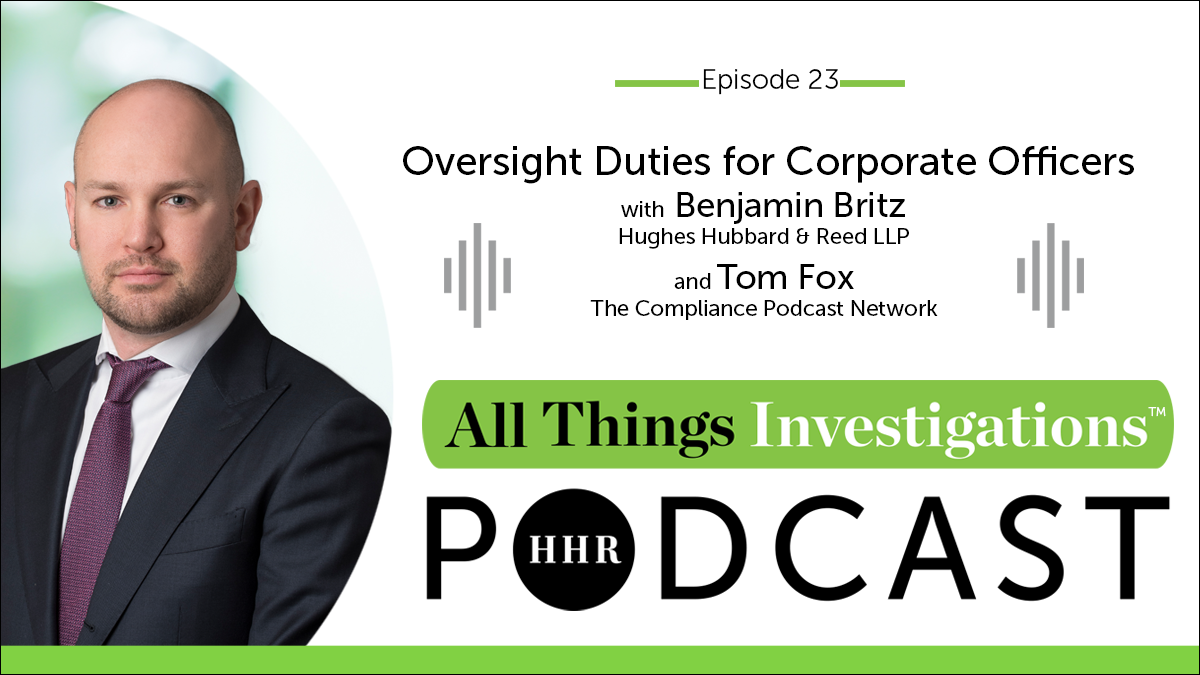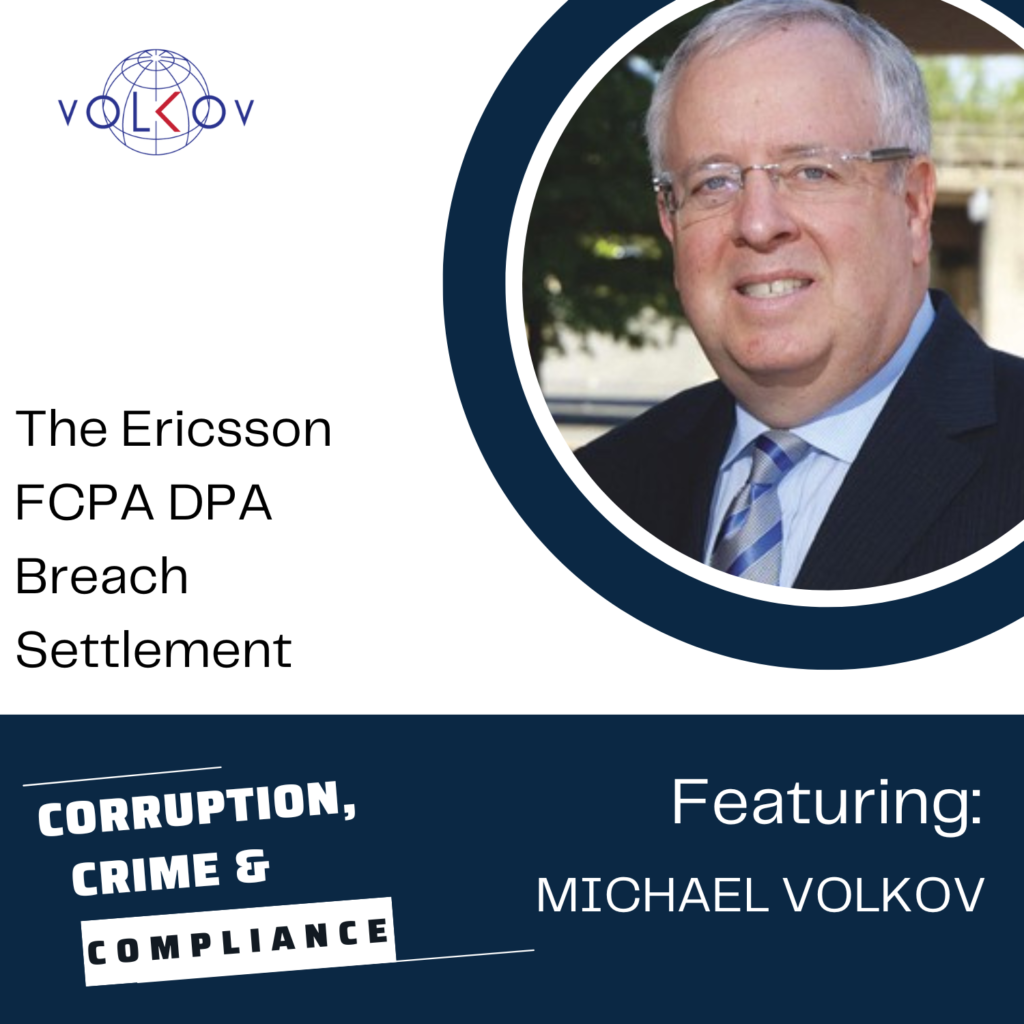What you’ll learn on this podcast episode
How can organizations find ways to engage employees and ensure that compliance training content resonates with them, particularly in fast-paced work environments? In this episode of the Principled Podcast, host Susan Divers talks with Craig Huckelbridge and Lyndsey Conrad from Autodesk, a California-based tech company that is well known for its AutoCad design software as well as regular wins at the Academy Awards for the visual effects it enables for major Hollywood movies. Listen in as Craig and Lyndsey describe how they leverage gamification and gameshow techniques to get their employees’ engines revved up for competition, learning, and collaboration.
Guest: Craig Huckelbridge
Craig Huckelbridge is the Sr. Director of Legal Compliance & Litigation for Autodesk, Inc. Craig’s team is responsible for all aspects of Autodesk’s compliance and ethics program—including compliance with anti-corruption, conflicts of interest, gifts and entertainment, fair competition, and trade compliance laws and policies. His team also manages commercial and IP litigation matters for Autodesk. Prior to joining Autodesk, Craig was a member of Jones Day’s Antitrust & Competition Law practice group, where he represented companies in merger reviews, government investigations, and antitrust litigation and counseling. Craig began his legal career at Cooley LLP, where his practice focused primarily on antitrust and unfair competition litigation. Craig received a B.A. in economics and political science from Northwestern University and earned his J.D. from the Duke University School of Law.
Guest: Lyndsey Conrad
Lyndsey Conrad is the Director of Legal Compliance for Autodesk, Inc. and a member of Craig’s team. She manages Autodesk’s Code of Business Conduct and related trainings, as well as its global anti-corruption, third-party risk, and conflict of interest programs. Before joining Autodesk, Lyndsey was a Partner at Husch Blackwell LLP, where her practice focused on government regulatory litigation, internal investigations, compliance, and white-collar crime. Her dedication to compliance came when she became a member of Husch Blackwell’s pro bono Human Trafficking Legal Clinic, where she represented victims of commercial sex trafficking and forced labor trafficking in cases referred to the firm by law enforcement, prosecutors, and partnering nonprofit agencies. Lyndsey got her legal start as a Law Clerk to the then-Chief of the Tenth Circuit Court of Appeals. She earned a B.S. in Biology from UCLA and her J.D. from UC College of the Law, San Francisco.
Susan Divers is a senior advisor with LRN Corporation. In that capacity, Ms. Divers brings her 30+ years’ accomplishments and experience in the ethics and compliance area to LRN partners and colleagues. This expertise includes building state-of-the-art compliance programs infused with values, designing user-friendly means of engaging and informing employees, fostering an embedded culture of compliance and substantial subject matter expertise in anti-corruption, export controls, sanctions, and other key areas of compliance.
Prior to joining LRN, Mrs. Divers served as AECOM’s Assistant General for Global Ethics & Compliance and Chief Ethics & Compliance Officer. Under her leadership, AECOM’s ethics and compliance program garnered six external awards in recognition of its effectiveness and Mrs. Divers’ thought leadership in the ethics field. In 2011, Mrs. Divers received the AECOM CEO Award of Excellence, which recognized her work in advancing the company’s ethics and compliance program.
Mrs. Divers’ background includes more than thirty years’ experience practicing law in these areas. Before joining AECOM, she worked at SAIC and Lockheed Martin in the international compliance area. Prior to that, she was a partner with the DC office of Sonnenschein, Nath & Rosenthal. She also spent four years in London and is qualified as a Solicitor to the High Court of England and Wales, practicing in the international arena with the law firms of Theodore Goddard & Co. and Herbert Smith & Co. She also served as an attorney in the Office of the Legal Advisor at the Department of State and was a member of the U.S. delegation to the UN working on the first anti-corruption multilateral treaty initiative.
Mrs. Divers is a member of the DC Bar and a graduate of Trinity College, Washington D.C. and of the National Law Center of George Washington University. In 2011, 2012, 2013 and 2014 Ethisphere Magazine listed her as one the “Attorneys Who Matter” in the ethics & compliance area. She is a member of the Advisory Boards of the Rutgers University Center for Ethical Behavior and served as a member of the Board of Directors for the Institute for Practical Training from 2005-2008.
She resides in Northern Virginia and is a frequent speaker, writer and commentator on ethics and compliance topics. Mrs. Divers’ most recent publication is “Balancing Best Practices and Reality in Compliance,” published by Compliance Week in February 2015. In her spare time, she mentors veteran and university students and enjoys outdoor activities.







